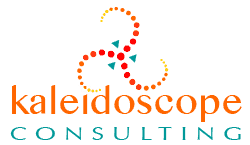Water and the Global Entrepreneur
By Michelle Newman Brady
I recently attended the Alleviating Poverty Through Entrepreneurship (APTE) Summit in Columbus, Ohio. The gathering focused around the idea that creative entrepreneurship can create pathways out of poverty. Having heard great things about the event in the past, I dedicated a chunk of my Saturday morning to attending.
(Before I get too far into this, let me add the impetus behind this missive is to not bash a conference intended to promote dialogue and “create channels for action.” If anything, I was moved in such a way to speak up on a topic I have previously never engaged in a public setting. That in itself seems to support the continuation of such events.)
As I sat in the audience, warning bells started ringing in my head. After quickly reviewing the conference program, I was surprised to see that on the roster of ten speakers, only two were women and seven were white males.
The morning sessions focused on the global clean water crisis, so you could imagine my reaction to a fairly insensitive (but rather regular conference faux pas) of providing bottled drinking water on stage for each of the presenters.
Between the male-dominated speaker lineup and the bottled water, my head was already in the wrong place. Things got worse as speaker after speaker got up and proposed their ideas for “fixing” the water crisis in Africa, Honduras, and a variety of other countries. Yes, I realize Africa is a continent, not a country, but I’m not sure if all the speakers were aware of that fact.
Having spent six years working with a leadership development program in Southern Africa, I am well aware that African citizens more often than not are capable of creating and executing African solutions to African problems. What we often fail to see as well-intentioned world fixers is that what we identify as a “problem that needs fixing” is more often than not a conflict deeply rooted in cultural norms and years of history, tradition, and local politics.
The day progressed and conference presenters showed off branded ergonomic water-purifying backpacks, hand pumps with remote satellite sensors, and corporate-sponsored water access tents. While some of the “solutions” were rather ingenious approaches to producing clean water, most still required a fair amount of travel to access clean water sources (most often required of women).
How any of these solutions actually produced local incomes that reduced poverty was also never fully explained. Being that the forum was focused on entrepreneurship, we were constantly reminded that the global water crisis provided pathways into “emerging markets” due to the large number of economic opportunities by creating and selling solutions to the water problem. By the end of the morning sessions though, I hadn’t yet figured out who was actually going to reap the final rewards of entrepreneurial success.
As my head reeled, I was struck with a great fear that most of the “solutions” at hand would create even greater problems – anthropological endangerment, social and economic stratification, and increased reliance on “the outside” for solution production and maintenance.
While working to raise individuals out of poverty, I believe we must take great care as global citizens to not further divide ourselves into those that “have” and those that “have not” or regard one way of living as lesser than another more accepted way of doing so. Entrepreneurship as a pathway out of poverty may play an important role, but goodness help us if we focus on it as the answer to a world dying of thirst.
Luckily, as the program neared its morning conclusion, a couple of the speakers really understood the concept of local solutions for local problems. The last couple of speakers threw out a few zingers that really resonated with me. Pardon my lack of quote attribution, but try these on for size:
“The more I work in Africa, the more I realize I know nothing about Africa.”
“Don’t define people by what they lack.”
It is in this kind of thinking we can work to solve not a global water crisis but focus on local challenges and provide support and partnership, not The Answers.
Michelle Newman Brady is a freelance wellness consultant teaching fitness classes, writing leadership development curriculum, and providing unsolicited training advice to triathletes. In a past life, she worked with a former US Ambassador and the former executive director of charitable contributions at BPAmerica to develop a peer based leadership program in Southern Africa for executives working in philanthropy, government, and NGOs.
